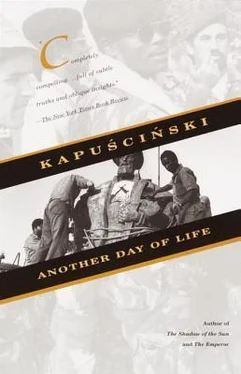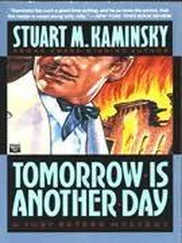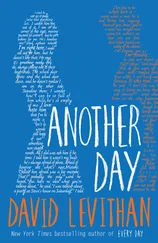Those British mercenaries who escaped from the northern front are already in London, telling what they did in Angola. “Some people,” one of them says in a BBC report, “think that war is a nice, light flesh wound in the leg. They’re wrong. War is a head smashed to pulp, legs blown off, guys crawling in a circle with their guts spilling out, a guy soaked in napalm but still alive. It hardens you. For instance, you find a wounded Cuban and turn him over on his back, he makes some sort of movement. You think he’s going for a gun so you shoot him dead. But maybe he only wanted to pull out a photograph of his wife and say ‘Help me.’ And you shot him. You just didn’t want to take the risk. If a person fires into a moving wall of people he doesn’t look at their faces, doesn’t look at the people. He simply shoots at the silhouettes and doesn’t connect them with any human beings. When you come up directly on somebody and fight hand to hand, then you see plainly that it’s a person just like you, but then your life is usually at stake. You have to kill him before he kills you. I killed my first man when I was seventeen, seventeen and a half, maybe eighteen, in Aden. Later, I had nightmares — battle shock — and I woke up screaming, but now, now I can’t even remember what that guy looked like.”
Pieter Botha, the defense minister of the Republic of South Africa, passes his army in review as it returns from war across the border bridge over the Cunene River. Although the soldiers cross the bridge in silence, there is a lot of shouting and screaming in the vicinity, since at the same time the FNLA and UNITA units that until that moment had accompanied the white South African soldiers are throwing themselves into the river en masse and splashing across toward Namibia. Many drown in crossing. But the war has ended, the democracy of the front has ended; and the law of segregation applies again: Passage across the bridge is for whites only.
The years 1976–2000: the war continues. It is one of the longest-lasting armed conflicts in the contemporary world. Has anything changed? Unfortunately, not much. Yes, the Cubans have departed. As have the South Africans. But the Angolans are still there — it is their country: a country divided, torn apart, ruined by civil war, whose central government has been consumed for three decades by the rebellion of Jonas Savimbi.
The government has plentiful deposits of oil. Savimbi: great diamond mines. Each side reaps substantial revenues from these riches, which allow them to wage war into infinity. Maybe a million have already died in the fighting, but there are several million still alive; the list of victims will continue to grow.
I return in my thoughts to those I had met then. What has become of them? If Diogenes is no longer alive, it may well be that his sons are fighting. And strong, stocky, courageous Farrusco? Even if he did survive, he would be too old now to be in the trenches. But I remember him saying that a son had just been born to him. So if I were to meet a young officer on the Angolan front these days, ask him his name, and hear that it’s Farrusco, I would answer: Years ago, I rode in a jeep with someone who had the same last name. Yes, the young officer would concur, that was my father.
And tall, silent Comandante Ndozi? Ndozi is no longer alive. He was blown up by a mine. Monti was also blown up by a mine. Powerful, cheerful Batalha as well. In these wars, enemies see each other face-to-face less and less frequently. They perish as they walk, while everything around them is empty and quiet. Death comes at them covertly, lying in wait under some sand, beneath a stone, under a clump of blackthorn. The earth was once the source of life, a granary, something desirable. Now, in these parts, man regards the earth suspiciously, distrustfully, with fear and loathing.
What happened to Oscar? Perhaps he survived, and has retired. I would so much like him to have a good and peaceful old age. And Gilberto? I don’t know, I cannot say. Felix? I also don’t know. People disappear without a trace, so completely and irretrievably, first from the world, and then from our memory.
And Dona Cartagina? I am almost afraid to think about it. What if she is no more? But this seems impossible. Without Dona Cartagina, I cannot imagine either Luanda, or Angola, or this whole war. That is why I am convinced that should you be in Luanda, sooner or later you will meet a gray-haired old woman walking in the morning toward the Hotel. Tivoli She will be hurrying, because, just like every other day, a lot of cleaning awaits her. If you stop her and inquire, “Excuse me, are you Dona Cartagina?” the woman will stop for a moment, look at you with surprise, and then politely answer, “Yes, it is I.”
And she will continue briskly on her way.
Ryszard Kapu  ci
ci  ski, Poland’s most celebrated foreign correspondent, was born in 1932. After graduating in history from Warsaw University, he was sent to India, Pakistan, and Afghanistan to report for Polish news, beginning a lifelong fascination with the Third World. During his four decades reporting on Asia, Latin America, and Africa, he befriended Che Guevara, Salvador Allende, and Patrice Lumumba; witnessed twenty-seven coups and revolutions; and was sentenced to death four times.
ski, Poland’s most celebrated foreign correspondent, was born in 1932. After graduating in history from Warsaw University, he was sent to India, Pakistan, and Afghanistan to report for Polish news, beginning a lifelong fascination with the Third World. During his four decades reporting on Asia, Latin America, and Africa, he befriended Che Guevara, Salvador Allende, and Patrice Lumumba; witnessed twenty-seven coups and revolutions; and was sentenced to death four times.
His books— Shah of Shahs (about the Iranian Revolution), The Emperor (about the fall of Ethiopia’s Haile Selassie), Imperium (about the fall of the Soviet Union), and The Soccer War (a compendium of reportage from the Third World) — have been translated into nineteen languages. His most recent book, The Shadow of the Sun , “a record of my forty-year marriage to Africa,” will be published by Alfred A. Knopf in 2001.

 ci
ci  ski, Poland’s most celebrated foreign correspondent, was born in 1932. After graduating in history from Warsaw University, he was sent to India, Pakistan, and Afghanistan to report for Polish news, beginning a lifelong fascination with the Third World. During his four decades reporting on Asia, Latin America, and Africa, he befriended Che Guevara, Salvador Allende, and Patrice Lumumba; witnessed twenty-seven coups and revolutions; and was sentenced to death four times.
ski, Poland’s most celebrated foreign correspondent, was born in 1932. After graduating in history from Warsaw University, he was sent to India, Pakistan, and Afghanistan to report for Polish news, beginning a lifelong fascination with the Third World. During his four decades reporting on Asia, Latin America, and Africa, he befriended Che Guevara, Salvador Allende, and Patrice Lumumba; witnessed twenty-seven coups and revolutions; and was sentenced to death four times.









